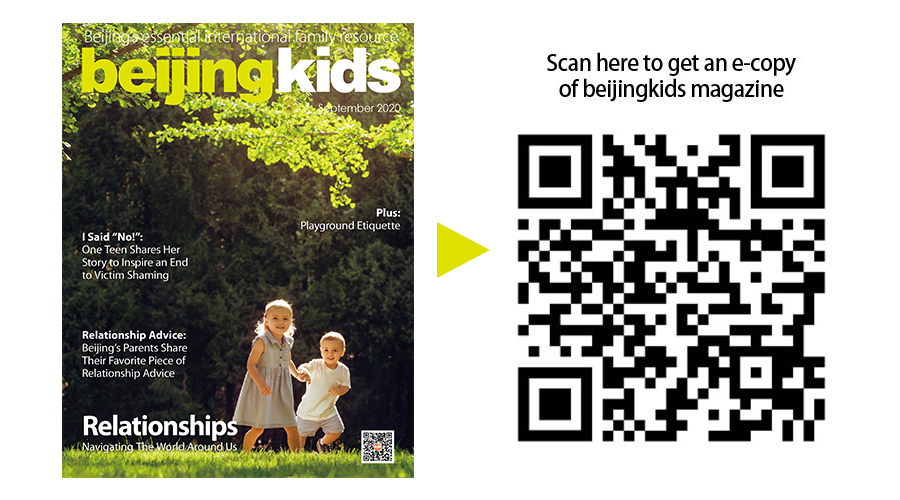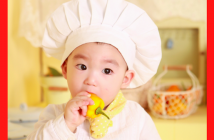You might have heard of “The Biggest Loser,” a reality TV show which features obese contestants who embark on a 30-week long journey to attempt to lose as much weight as possible. To do this, they go through grueling workouts and eat measly but “healthy” and low-caloric salads and sandwiches. In this show, food is portrayed merely as a tool for weight loss and contestants often lose 20-30 pounds per week although professional guidelines usually recommend losing no more than one-two pounds per week. Unsurprisingly, many contestants find themselves regaining most of the weight they lost in the long run.
Sadly, many people have a Biggest Loser kind of attitude towards food that is, in the view of Dr. Liu, a clinical dietitian working at Beijing United Family Hospital, extremely one-sided. Instead of labeling foods as sinful and untouchable, she believes that people should develop a grateful attitude towards food, which is a necessity in terms of our health and survival. According to Dr. Liu, the nature of food is neither moral nor immoral, however improper food choices do negatively affect our health.
 One cause of this imbalance in attitude to food is the unrealistic beauty standards so prevalent in mainstream media. One report published online by the American Academy of Pediatrics Committee on Nutrition found that half of the assessed teenage girls and a quarter of boys weren’t satisfied with their bodies. This dissatisfaction often leads to excessive dieting which can lead to eating disorders, abnormal hormone secretion, and even infertility, not to mention the equally destructive mental health problems improper dieting instigates.
One cause of this imbalance in attitude to food is the unrealistic beauty standards so prevalent in mainstream media. One report published online by the American Academy of Pediatrics Committee on Nutrition found that half of the assessed teenage girls and a quarter of boys weren’t satisfied with their bodies. This dissatisfaction often leads to excessive dieting which can lead to eating disorders, abnormal hormone secretion, and even infertility, not to mention the equally destructive mental health problems improper dieting instigates.
Pictures of influencers and celebrities on social media appear attractive, but they are often unattainable. In East Asian cultures, girls with slender frames are generally deemed more attractive; thus, girls go on diets and ignore cues of hunger, which studies have shown to be counterproductive to weight loss in the long run.
Finding a healthy relationship with one’s body and food can be difficult when the problematic idea of a “perfect” body image is so prevalent and widespread, but we should all recognize that we have our own individual body types and eating patterns. Rather than seeing food as evil or something to blame, a barrier between ourselves and healthy bodies, we should recognize that developing healthy eating habits will improve our metabolism, mood, and health in general.
 And what about dieting? Dieting culture can be found the world over but as local fitness and dance instructor Vanderwegen Moreno Dorotea, or Diva to her friends and students, shares, although people have become more educated about how certain foods affect our bodies in recent times, diet culture can quickly become toxic and detrimental to one’s physical and mental health. Practicing ballet from a young age, Diva struggled to emulate the extremely thin body type synonymous with classical ballet dancers. In order to achieve this, she tried all sorts of diets, to the extent of starving herself and becoming anorexic, and suffered from hormonal imbalances, subsequent overeating, and psychological shocks as a result. These days, Diva does not believe in diets and emphasizes that as we all have different bodies that react differently to different foods, a diet that works for one person won’t necessarily work for another. Dr. Liu also does not recommend diets, especially fad diets due to the lack of scientific evidence behind them. Dr. Liu believes many diets don’t take into account the bigger picture, in which being healthy is not exclusively limited to being thin.
And what about dieting? Dieting culture can be found the world over but as local fitness and dance instructor Vanderwegen Moreno Dorotea, or Diva to her friends and students, shares, although people have become more educated about how certain foods affect our bodies in recent times, diet culture can quickly become toxic and detrimental to one’s physical and mental health. Practicing ballet from a young age, Diva struggled to emulate the extremely thin body type synonymous with classical ballet dancers. In order to achieve this, she tried all sorts of diets, to the extent of starving herself and becoming anorexic, and suffered from hormonal imbalances, subsequent overeating, and psychological shocks as a result. These days, Diva does not believe in diets and emphasizes that as we all have different bodies that react differently to different foods, a diet that works for one person won’t necessarily work for another. Dr. Liu also does not recommend diets, especially fad diets due to the lack of scientific evidence behind them. Dr. Liu believes many diets don’t take into account the bigger picture, in which being healthy is not exclusively limited to being thin.
But if dieting is out, what constitutes a healthy, normal relationship with food? One movement, for so-called ‘intuitive eating’, is gaining traction of late, and takes a somewhat primitive approach to food, with adherents eating according to their instinctive cues of hunger and cravings, rather than diets. Dr. Liu says that she finds the concept interesting, but that the lack of scientific support is concerning, as people are biologically wired to crave sweets when they are tired. She also points out that one’s feelings or cravings don’t always correspond to needs, but what she calls ‘taste memory’ or basically, habits. To transition to a healthier relationship with food, Dr. Liu recommends referring to professional resources like the World Health Organization, national nutrition associations, or clinical specialists instead of following pseudo-professionals online.
 Somewhat related to intuitive eating, mindful eating is another movement growing in popularity and is designed to prevent the habitual and unconscious consumption of food, for example munching on chips while watching TV. When eating like this, our brains are not engaged with the food we are tasting, and it is easy to completely miss cues such as fullness, and end up overeating. To prevent this and to re-engage with the eating experience, advocates of mindful eating encourage taking measures such as only eating at the dining table, putting away phones, books, and other distractions while eating, and writing a reflection of your eating experiences after each meal.
Somewhat related to intuitive eating, mindful eating is another movement growing in popularity and is designed to prevent the habitual and unconscious consumption of food, for example munching on chips while watching TV. When eating like this, our brains are not engaged with the food we are tasting, and it is easy to completely miss cues such as fullness, and end up overeating. To prevent this and to re-engage with the eating experience, advocates of mindful eating encourage taking measures such as only eating at the dining table, putting away phones, books, and other distractions while eating, and writing a reflection of your eating experiences after each meal.
Finally, along with dietary modifications, making lifestyle changes such as incorporating a consistent exercise regimen will also contribute to a better mood and health. To do this, many of us need a shift in mentality, to view exercise not only as a tool for weight-loss but something enjoyable that also carries other positive health and social effects. If you’re thinking about starting a new exercise regime, Diva recommends thinking through and recognizing the ways that it will benefit your life, not only from a weight-loss perspective. This way, you are more likely to stick to it long-term.
KEEP READING: Nutritional Weaning: Pumpkin and Sweet Potato Baby Hummus
Images: Unsplash

This article appeared in the beijingkids 2020 September issue




